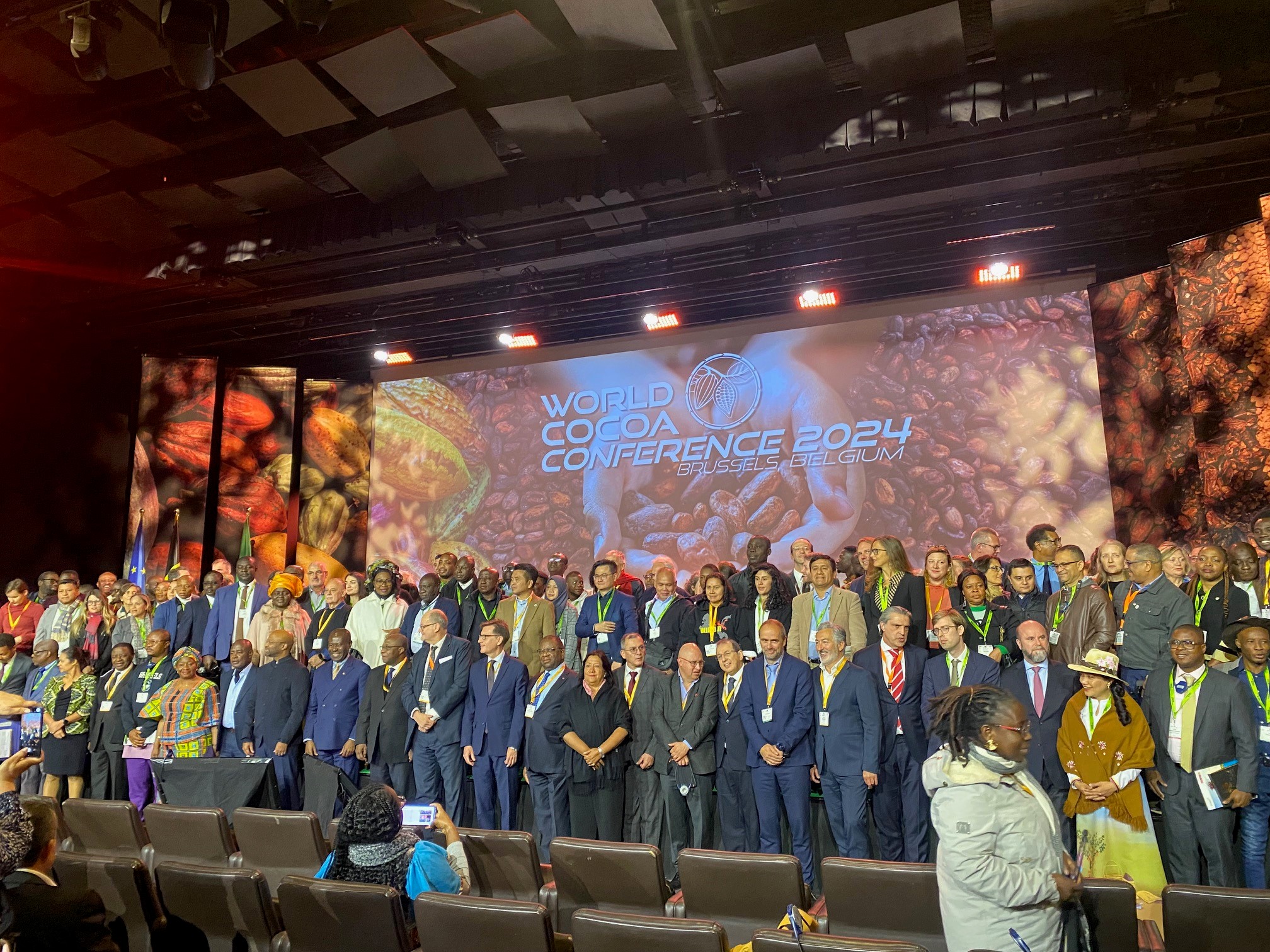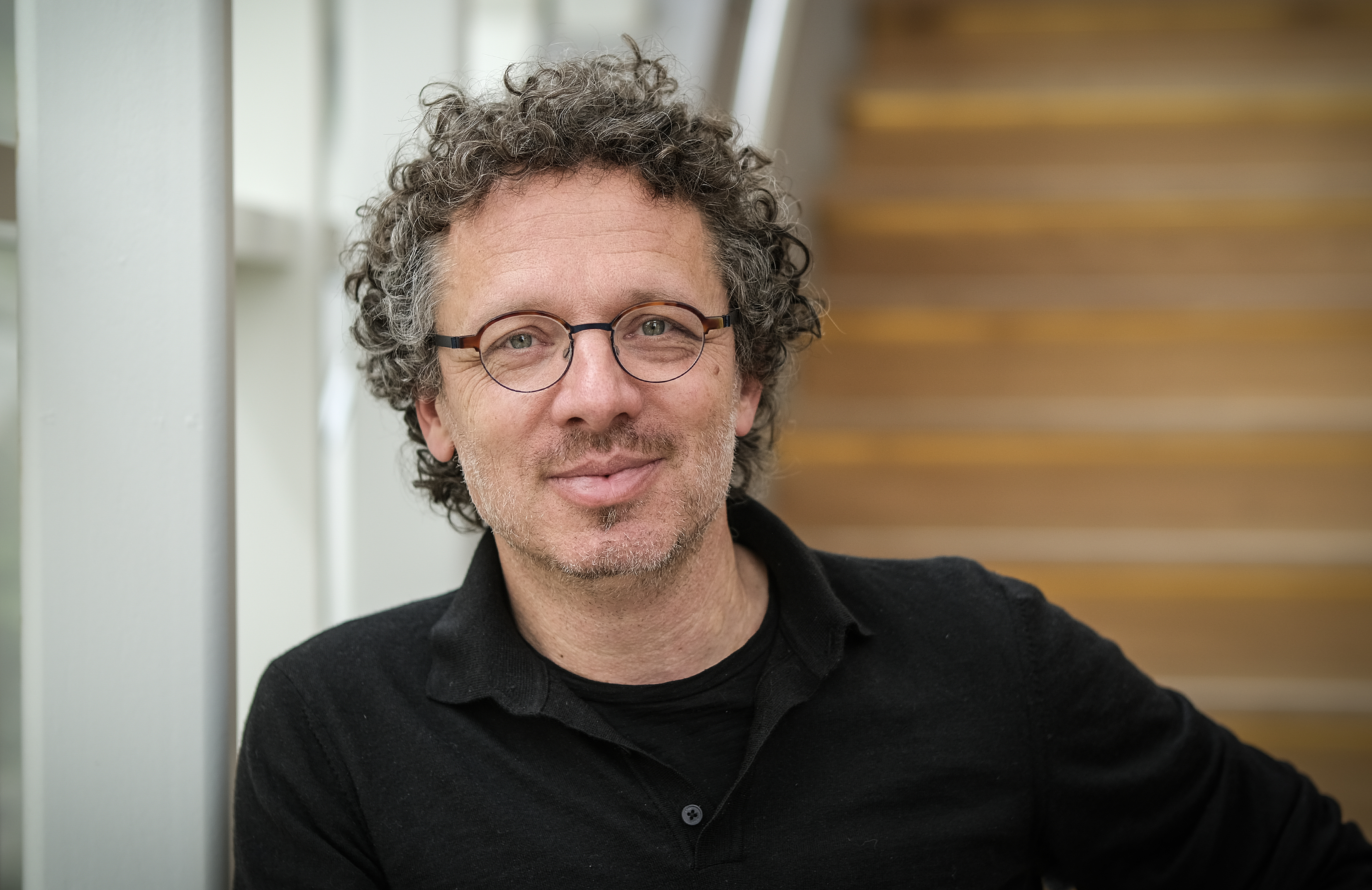From South Africa to Maastricht
Here at Maastricht University, we have students from all corners of the world, including South Africa. Why did they choose to come to Maastricht, how do they like UM and the city, and did they experience a culture shock? Let’s hear all about it from Julia Stenz, Jordin Borer and Christie Courtnage. They have been living and studying in Maastricht for a while now: Julia (20) is in her second year of the Maastricht Science Programme (FSE), Jordin (24) is rounding up his Master’s in International Business (SBE), specializing in Corporate Finance, and Christie (21) is in her third year of the bachelor’s in Data Science and Knowledge Engineering (FSE).
Julia Stenz
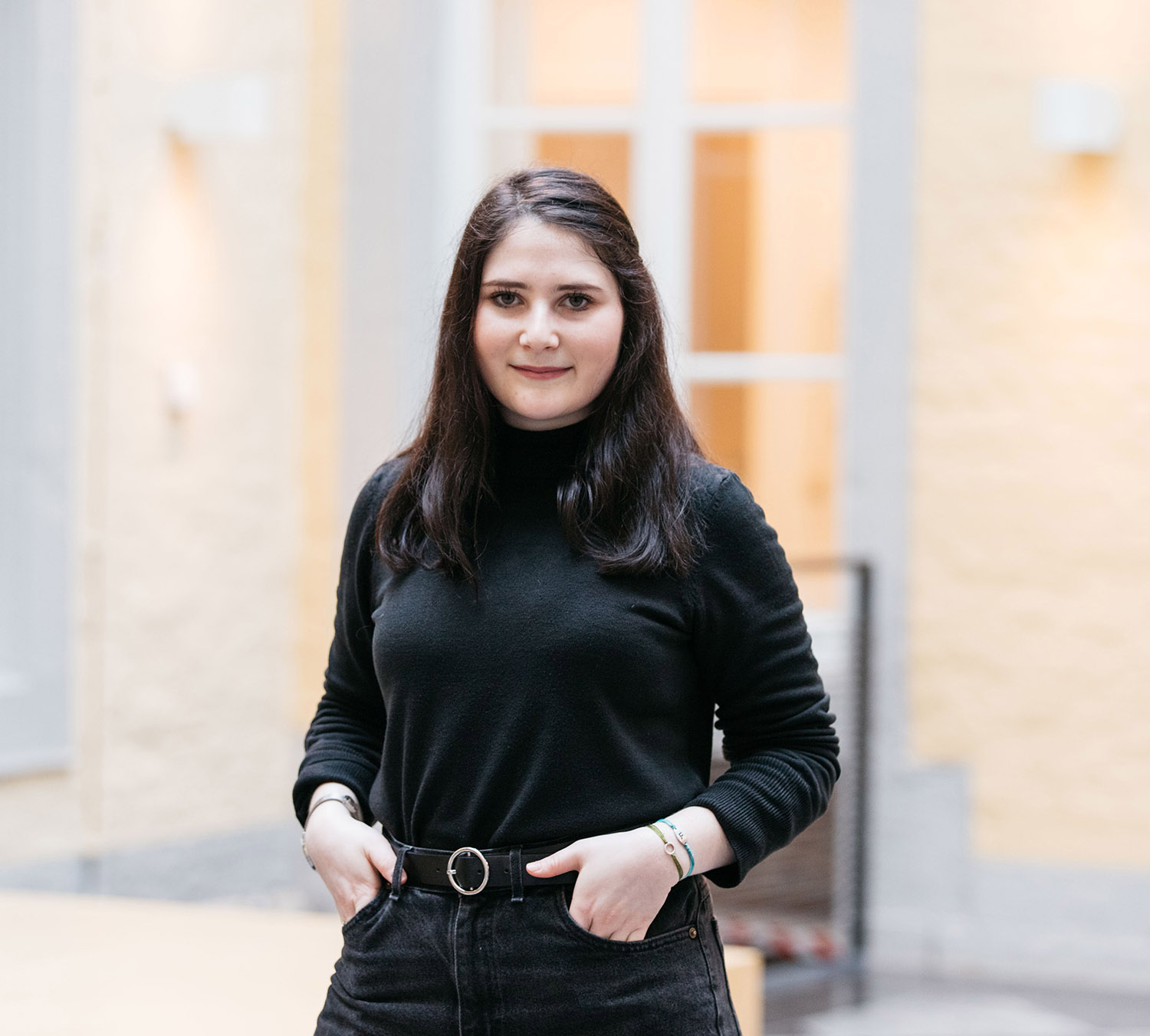
Europe
“When I started to apply for universities in 2017, the situation in the South-African academic world was unstable. For me, the insecure situation was one of the reasons to start looking into universities outside of South Africa. So I started googling, using the search terms ‘science university’, ‘English’, ‘Europe’. One of the first things that popped up was Maastricht University. I saw a lot of interesting things, such as exchange programmes, and I thought: this can’t be real. I investigated the programme further and it became more and more interesting. Next thing I knew I began applying and I can tell you one thing: I have never regretted this choice.”
Active
“Here at UM, with the Problem Based Learning education system, you cannot fall off your game. It is stressful, but it develops so many skills for the real world, later on in life. The way we are taught here is so active that it forces you to permanently be learning. When it comes to exams and you only had six week to take a six-month syllabus in, you seem very overwhelmed, but I always seem to know more than I think I do. The reason is that I was studying throughout the weeks for the tutorials. You have to actively read the work, discuss it, and then you will understand it. Trust me, you memorize much better when you discuss it. It is like in chemistry, when you explain mechanisms to others, you know what you are talking about. That does not happen when you are given a picture of what a mechanism is. Other people who have learned in different environments always say that they get much better grades here at Maastricht University. I understand why.”
Maastricht
”This city gives you a quintessential European experience: the river runs through the centre of town, there are many historical buildings, and you walk on cobblestone streets. What I immediately noticed and love about this place is that there are students everywhere around you. A true university city where everyone is in the same boat and enjoys the social hub that the university and the city offer. Where else can you experience that?”
February
“Another big advantage is that for some programmes you can start in February at UM. In the South African southern hemisphere, the academic year runs from January through November, so your summer vacation is December/January. In Europe, a February intake is unusual. Here at UM, you don’t have to wait until September but can start as you would in South Africa. In terms of continuing with a master’s: if I want to go somewhere in the southern hemisphere, I won't have to wait.”
Justin Borer
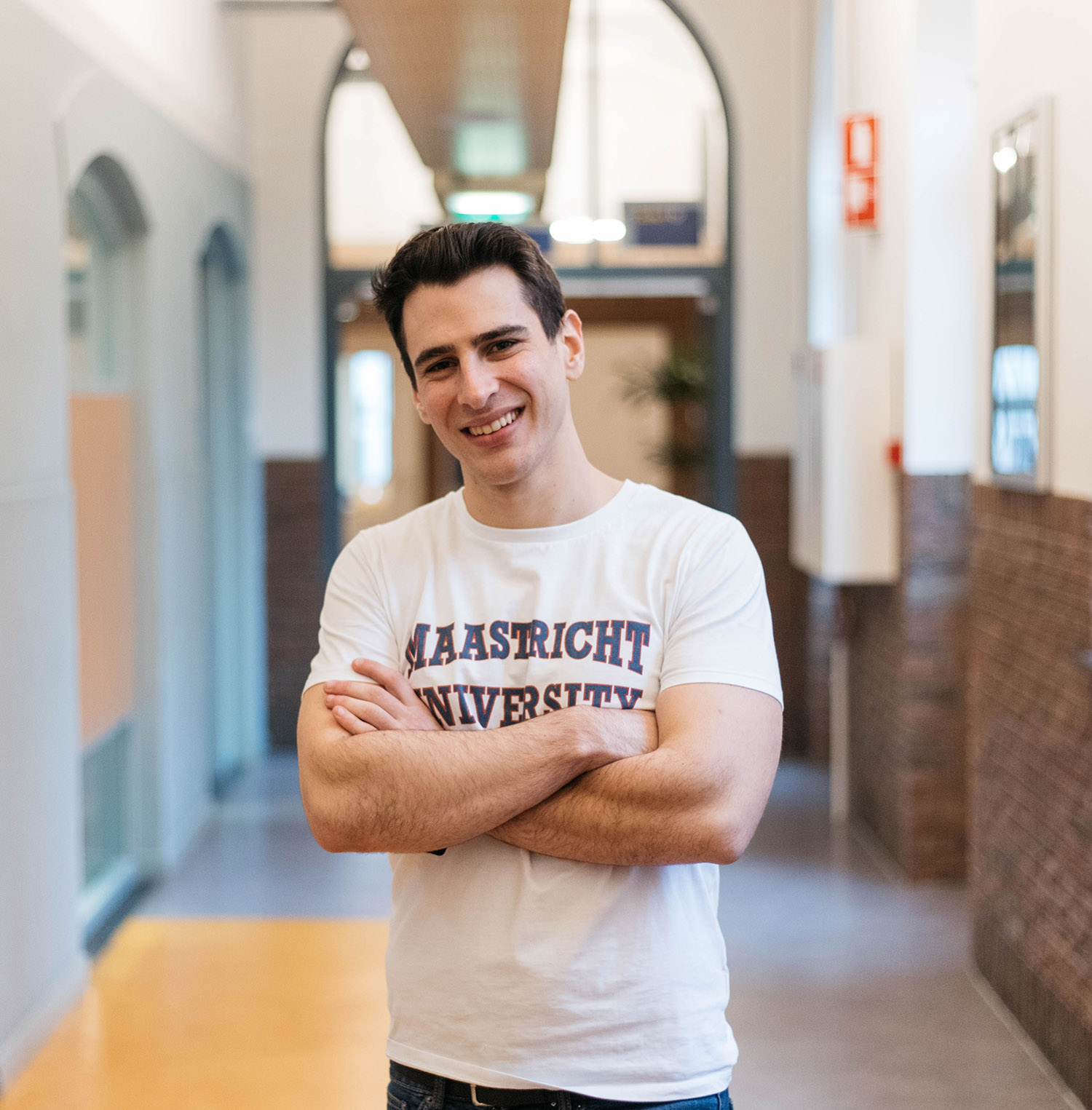
Problem Based Learning (PBL)
“I have been here for a year and now I am rounding up my master’s programme. After finishing my studies in South Africa, I remember sitting in the first tutorial and watching other students present. I had never seen anything like that. Yet, I adjusted to it very quickly. Before, I dreaded being in a speaking and a presentation environment, but now I am convinced that it is one the best ways to learn. You not only get an academic experience, but also a life experience. You learn how to take in information, put it into a digestible format, and ultimately present and synthesize it in a way that other people can understand it. I have improved my speaking skills, have learned from the feedback that I give to people and receive. I would never want to go to a system other than PBL. I can’t imagine sitting in a lecture hall again with thousands of people, ultimately not concentrating.”
Group work
“We work on real life projects in groups. The first exciting part of such a project is getting to know the other students in the group. In my case, some came from countries I had never even heard of: Surinam, Aruba etc. One project was in behavioural finance, which mixes psychology with traditional finance. Having a course in behavioural finance is remarkable in itself, because not many universities offer that. We looked at a behavioural mistake that people make in their savings behaviour. We did a survey to see if people would save more if they were given reference of a national savings rate. So, if they know that the average Dutch person saves 100 euros a month, they would think they should save the same amount. The results were remarkable. The treatment group was about 18% more likely to save a larger amount than the control group that was not given a savings reference. All the projects have been interesting. Working with real world cases was definitely the most exciting.”
Experience
“No doubt, it has been one of the most extraordinary experiences and I really think, looking back, I could not have chosen a better city and a better university. Everything from the academic experience to the social experience to the cultural and city experience has been what I aspired for and there are very few things throughout the course of the year that I would have changed. In other words, I am extremely happy.”
Future
“After I finish my master’s in International Business, specializing in Corporate Finance, I will definitely return to South Africa and make my mark in the finance industry there.”
Christie Courtnage
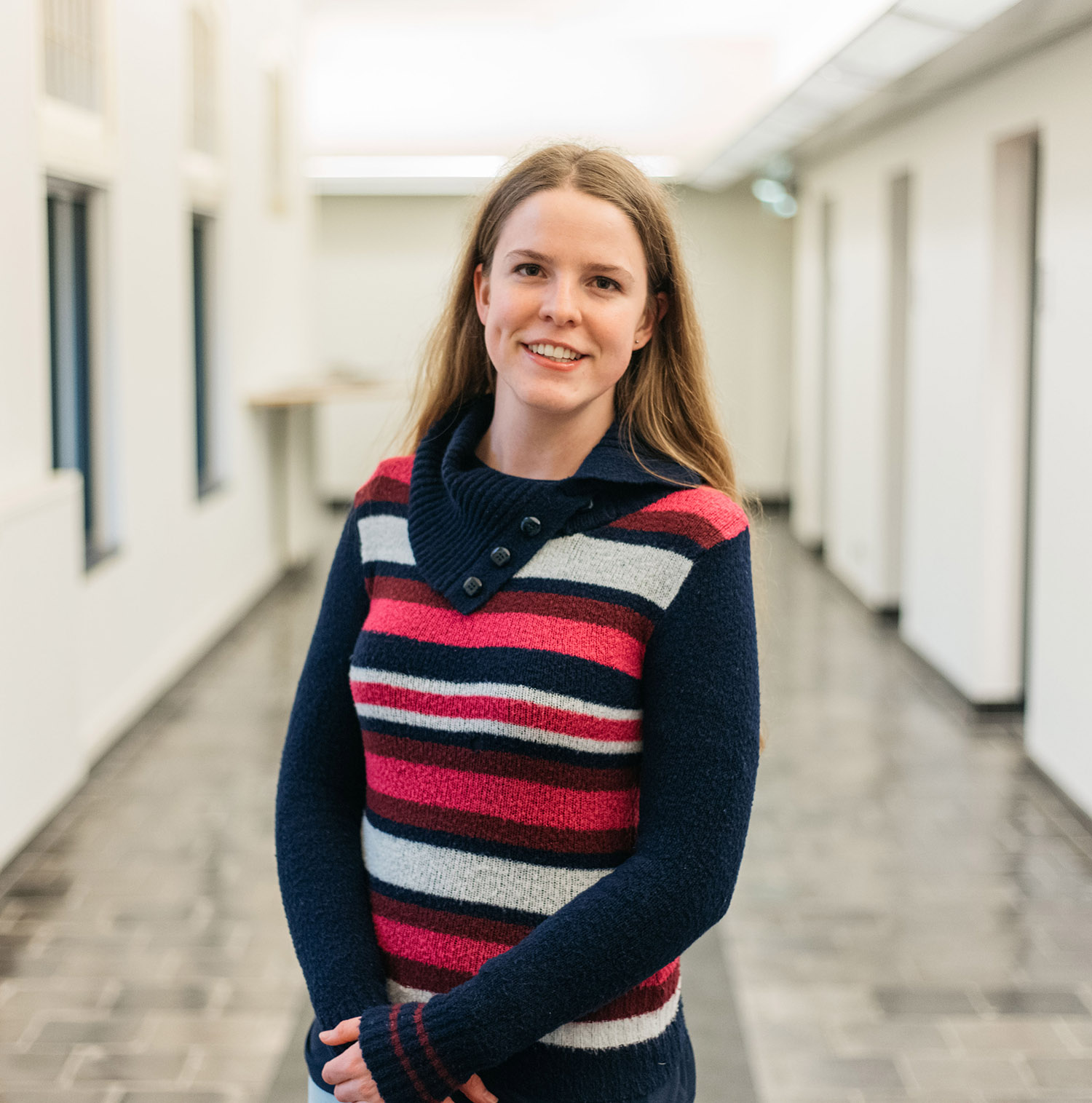
Project Centred Learning
“I am a third year student of Data Science and Knowledge Engineering. Our programme does not start in February, so I will graduate at the end of this academic year in June. In our programme, we work on the basis of Project Centred Learning. The projects are very interesting, tailored to the courses and useful. A true complement to the courses. In South Africa, you don’t have as many group projects. You do work hard, because 8-week blocks are challenging. You are always busy. We joke that we are always three weeks behind, because after the exams, you take it easy for a while and then you have to catch up. The program is very international. I actually have more Italian than Dutch friends. We spend a lot of time together, because we are all in the same situation. Far away from home.”
Internship
“After my first year, I started to do my internship via Knowledge Engineering@Work. This means that I work a couple of days per week during education periods and one month in the summer at a software engineering company in a nearby city. There you get a different perspective. I try the things I learn from university at work, so I know they are meant for real-life situations. My work is interesting and the supervisors are very understanding because they are alumni of this programme. If you need to switch working hours because of exams, they are flexible.”
Professors
“Professors are approachable here. In South Africa, it is completely different. There you know maybe one or two professors by name. But here, at DKE, it is not a matter of saying dear doctor or Professor, you just call them by their first name. We all gather at occasions, students and professors. This makes our teachers very human. Not like teachers at school, where when you saw them outside school and thought to yourself ‘you have a life outside school’?”
Recommend
“I would definitely recommend Maastricht University to South-African students, especially my programme, because there are not many programmes in Data Science at the bachelor level. Data science is huge now. It is an interesting field that can be applied to almost every other field. It is necessary. I do not regret coming here at all. You will be able to make friends very easily because everyone is in the same boat. However, be prepared for terrible weather.”
Do you also want to study here? Here is an overview with our bachelor and master programmes.
Maastricht University is in South Africa for the Study in Holland tour from March 15 to March 20. Click here to find out where you can find us.
Photography: Quinten Tolboom
Also read
-
Moving on your own to a new country with a different culture and language and without a support network can be challenging. Master's student Beverlianne Green therefore quickly realised she wanted to get involved with the local community. Through the Personal & Professional Development Portal of...
-
Fair and Smart Data (FSD) researcher Niklas Mensing attended the World Cocoa Conference in Brussels this year. In his blog, he shares personal learnings and thoughts from the conference proceedings and highlights some of the industry's core issues.
-
Drawing blood, inserting an IV, or looking into the ear; even seemingly simple medical procedures can cause anxiety, pain, and stress in children. According to pediatric intensivist Piet Leroy, comfort and trust are just as important as the medical treatment itself. Therefore, he is researching how...
